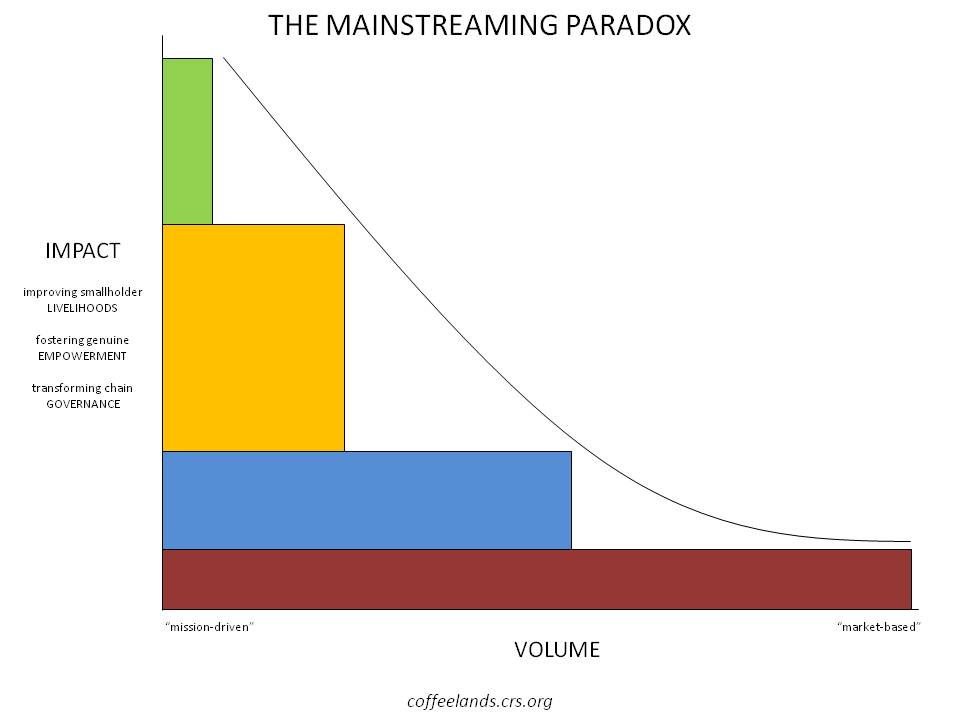Fair Trade USA has dramatically expanded the reach and aggregate impact of Fair Trade by aligning certification requirements more closely with conventional market logic and conventional sourcing practices. In the process, it has reduced the average impact of Fair Trade at the individual level. This is the mainstreaming paradox, and a source of discontent among FTUSA’s critics, who see the certifier doubling down on the mainstreaming approach with FT4All and further flattening the impact curve.
With this graphic, based on Fair Trade impact research and our own experience in the field, I am trying to illustrate four points.
- Relatively few companies involved in Fair Trade deliver on its full developmental promise.
The Fair Trade roasters leading the charge against FT4All take a transformational approach to trade and deliver deep developmental impacts for their trading partners. But there aren’t many of them, and they source a limited volume of coffee.
- The more market-based the orientation of Fair Trade Certification, the more diluted its average impact.
The more Fair Trade Certification accommodates conventional market logic and supply chain practices, the less radically it requires its licensees to transform their trading practices to benefit poor farmers.
- Business models matter.
Regardless of how certification is positioned in the marketplace, what farmers get out of Fair Trade depends on what roasters put into it. Fair Trade roasters fully committed to direct trading, pre-harvest finance, capacity-building, transparent price discovery and other core Fair Trade principles will deliver more benefits to their trading partners than roasters less committed to these practices. The four blocks here can be seen as four discrete business models, each one generating a different level of impact based on the particulars of its model.
- Some Fair Trade is better than none at all.
For smallholder farmers who are not currently in the Fair Trade market, even non-transformational, market-based Fair Trade can deliver important gains over conventional trade: eliminating intermediaries in the supply chain, strengthening relationships with remaining supply chain actors and shifting more of the end value of coffee to the farmer who grew it.



